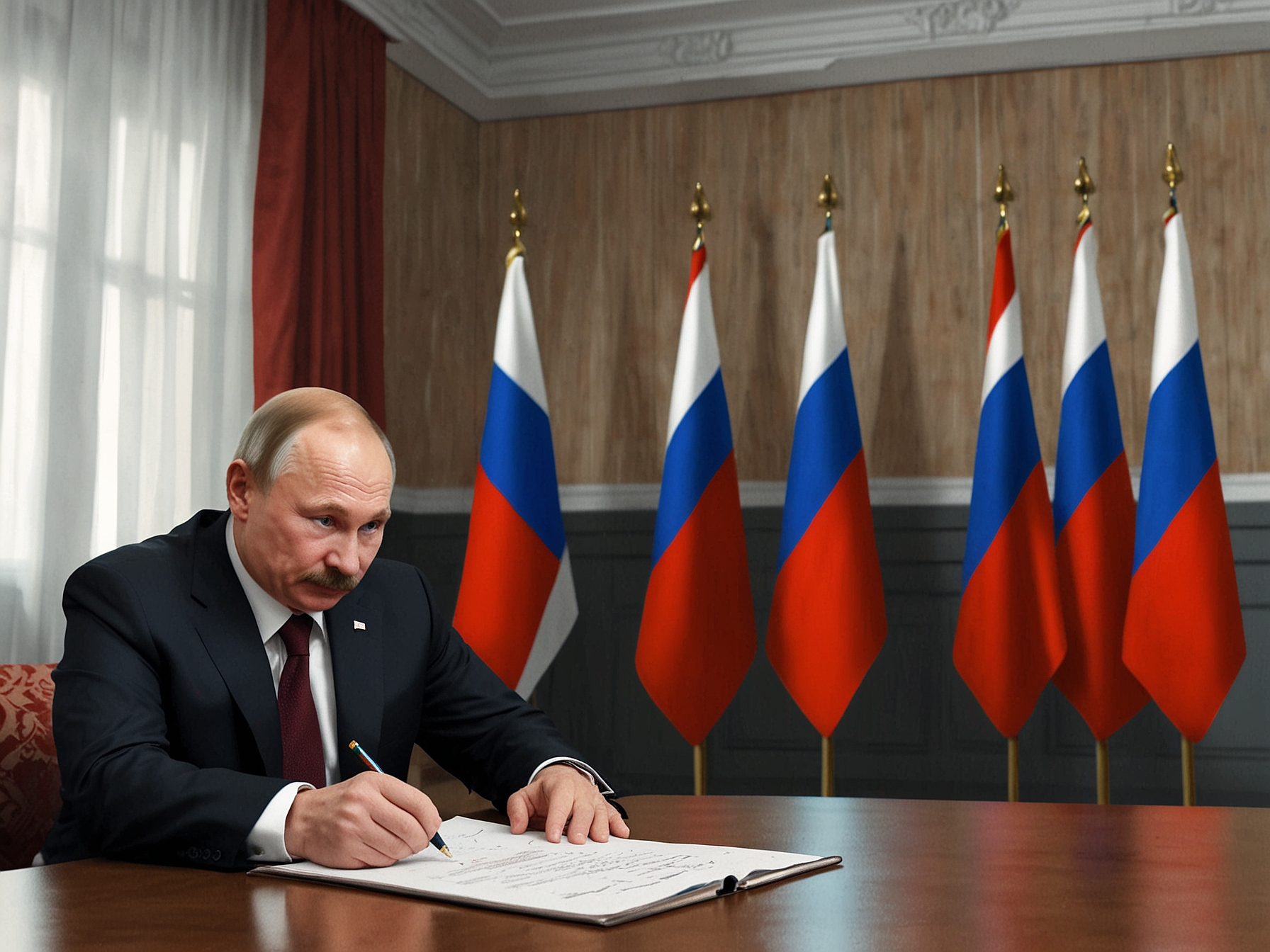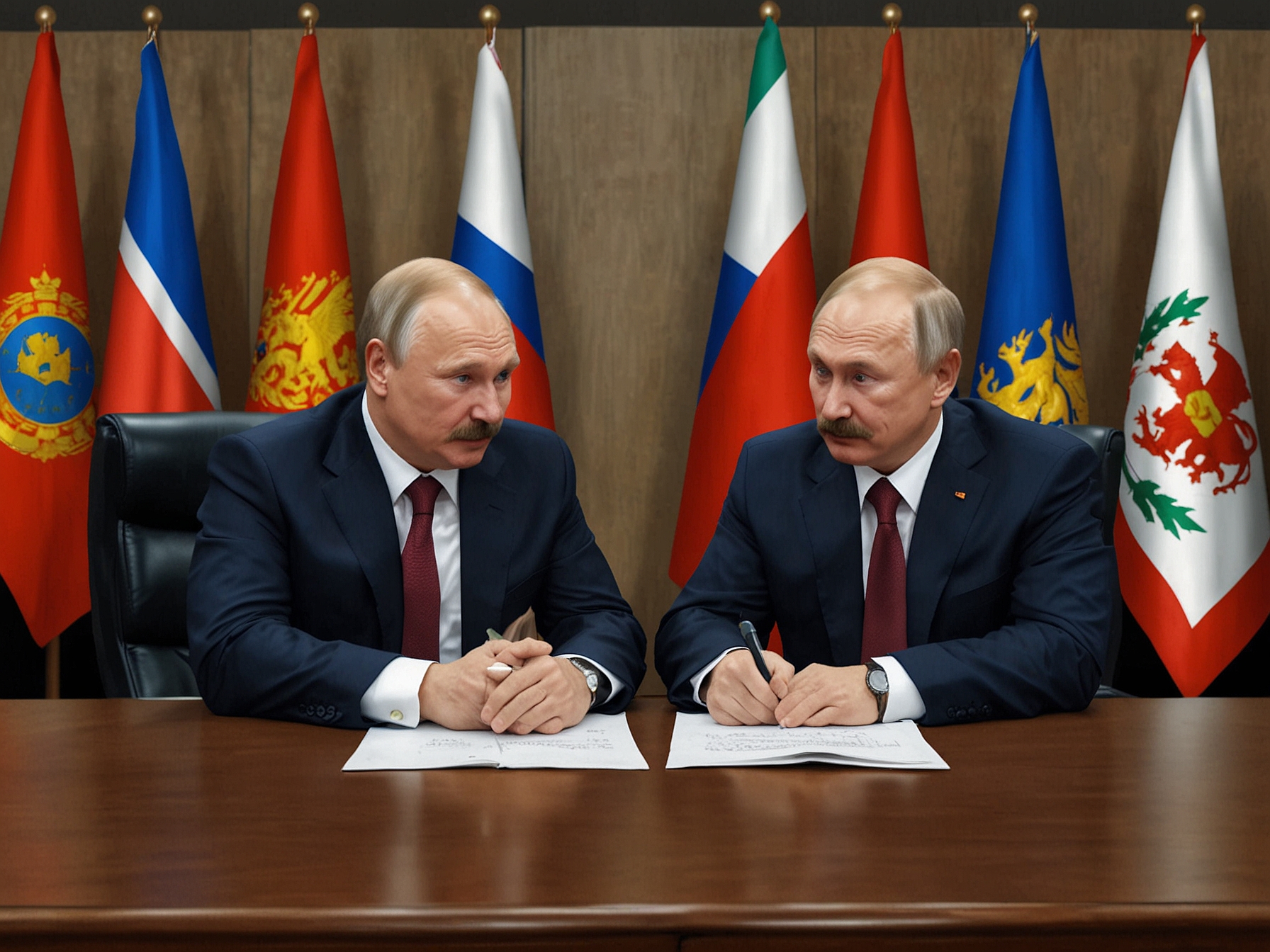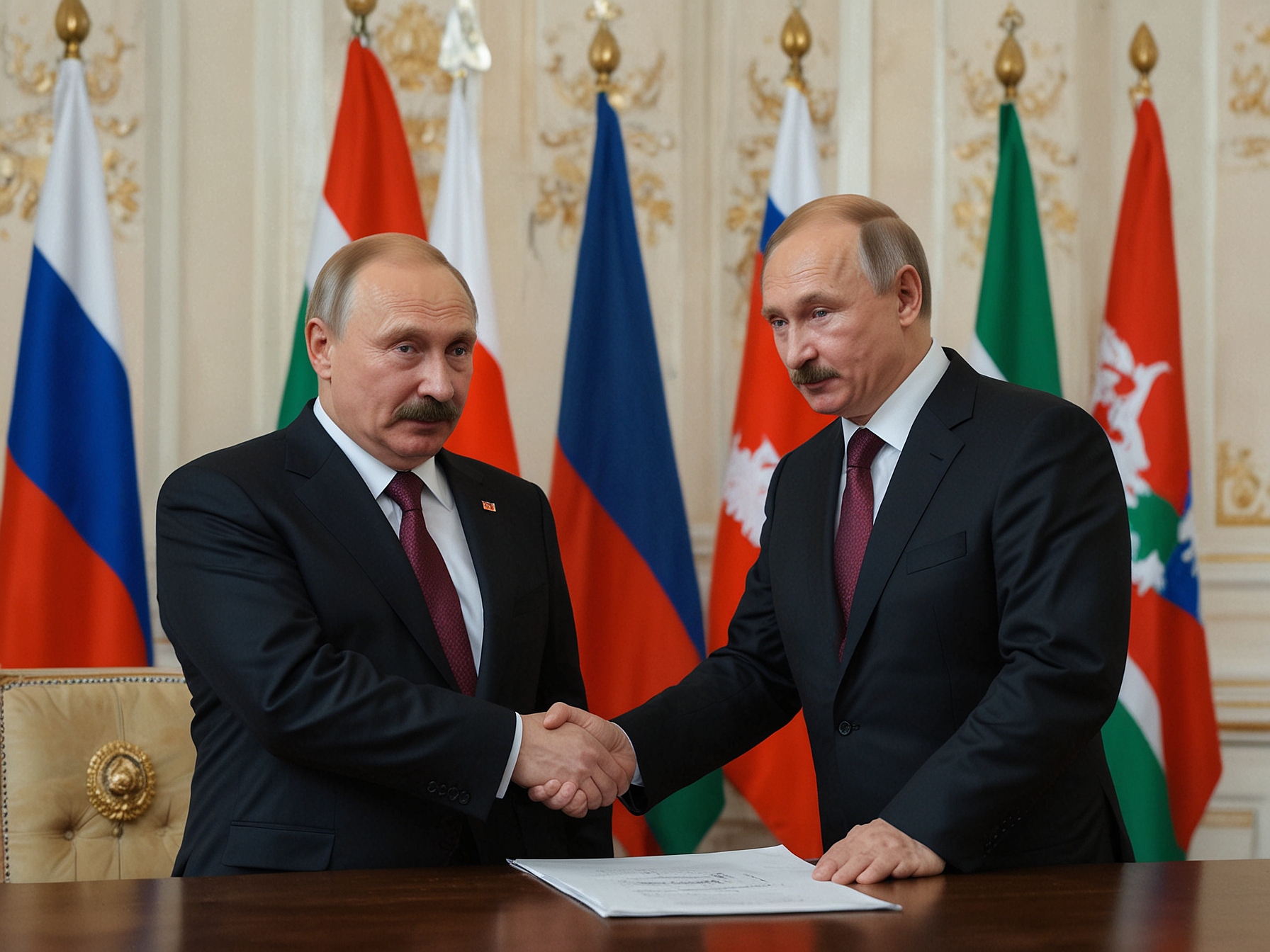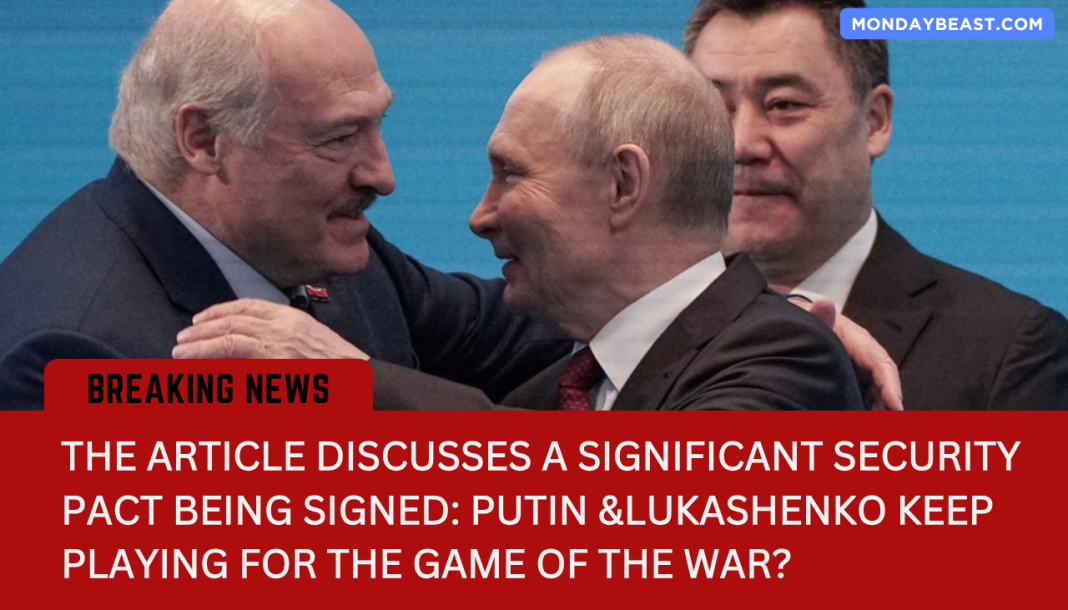Background of the Pact
This week, Russian President Vladimir Putin and Belarusian leader Alexander Lukashenko will sign a significant security pact. The meeting takes place in Minsk to celebrate the 25th anniversary of their Union State. This alliance has been a unique collaboration, prompting many to wonder how it will impact the region.
It seems the world is changing, and this pact could reflect broader geopolitical shifts. Belarusian Deputy Foreign Minister Igor Nazaruk remarked on the importance of the agreement. He emphasized that it would address state, public, and economic security.

The leaders aim to ensure stability amidst evolving external conditions. Could this be a response to the increasing unpredictability in international relations? The Russian state news agency RIA has been tight-lipped about the details.
Yet, the vague acknowledgment of a “polycentric world order” raises eyebrows. What does that entail? In a world filled with power struggles, this shift could have lasting impacts.
Implications for Global Geopolitics
With the signing of this pact, the international community is on high alert. What are the implications of Russia and Belarus cementing their ties? As power dynamics in various regions shift, alliances become more crucial.

Are we on the brink of new global alignments? The timing of this pact raises important questions. As Western powers grapple with their own challenges, could an empowered Russia signal a push against Western influence?
This could lead to increasingly polarized international relations. It’s a tense atmosphere. This pact also resonates beyond Europe, with nations watching likely sizing up their own security strategies.
If you’re examining your own country’s stance on security, what lessons can be learned from this alliance?
The Future of the Union State

As both leaders sit down to finalize the pact, what does the future hold for the Union State? The partnership has evolved significantly over the decades. But how relevant is this union in today’s political landscape?
Today’s geopolitical climate invites scrutiny. It challenges us to examine the personal stakes behind such agreements. For many Belarusians and Russians, what does this mean for their everyday lives?
Perceptions of safety, economic stability, and national pride hang in the balance. Looking ahead, the real challenge lies in execution. Can this pact translate into tangible benefits?
Or will it remain a document filled with aspirations? This is a moment worth following closely, as the implications could reach far and wide.




